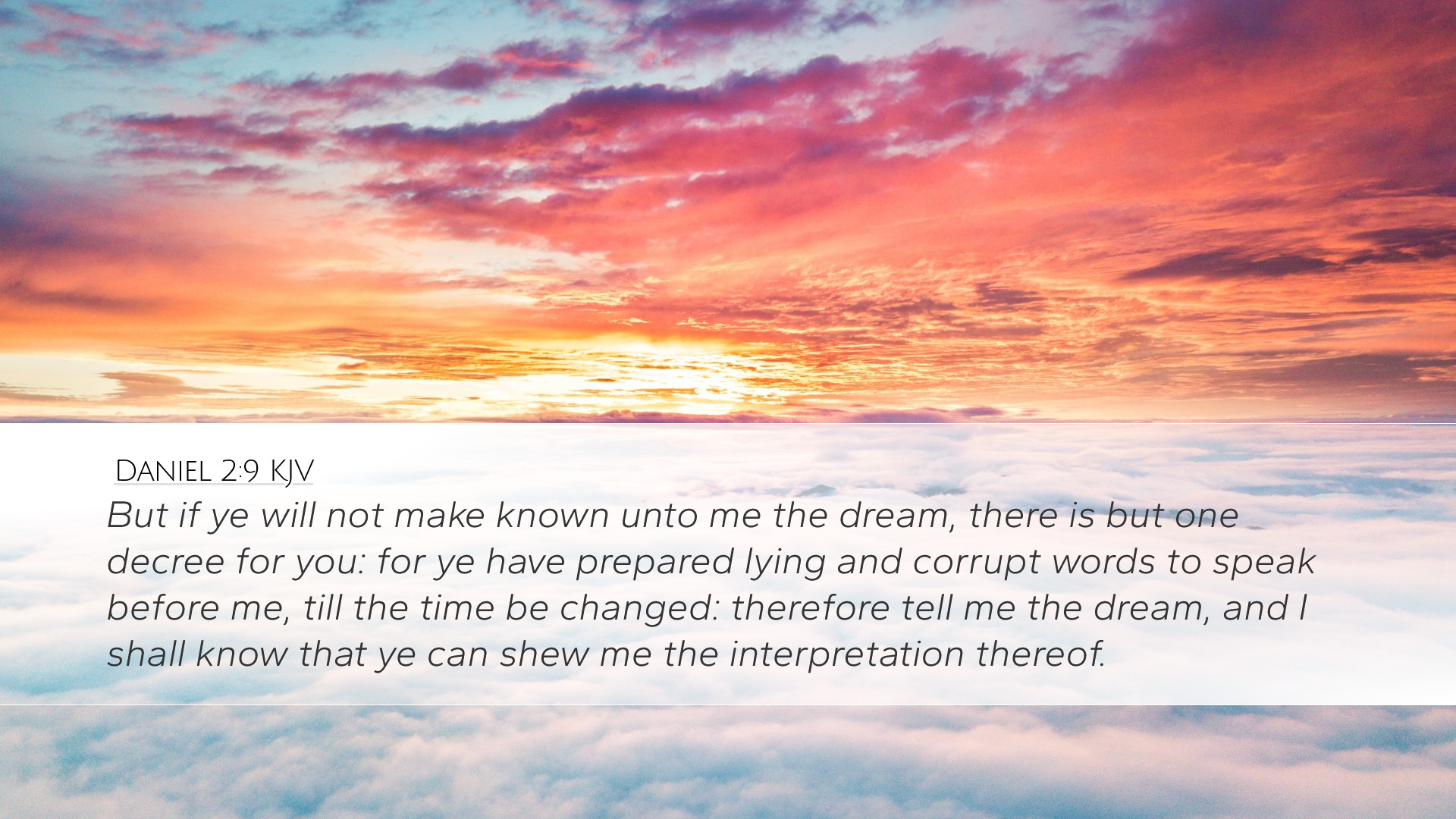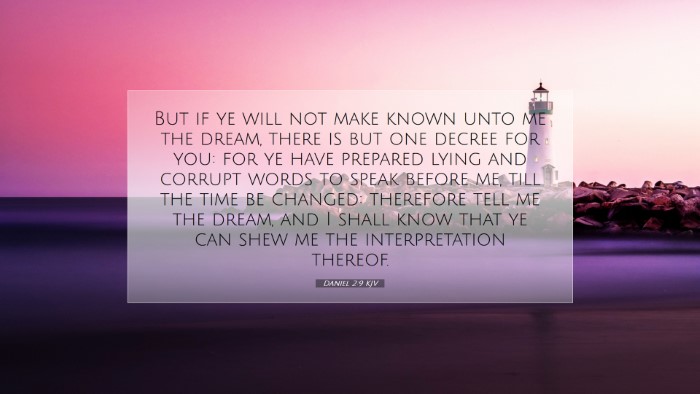Commentary on Daniel 2:9
Introduction
Daniel 2:9 presents a pivotal moment in the biblical narrative, encapsulating themes of divine sovereignty, human ignorance, and the revelation of mysteries through God's chosen vessels. This commentary draws from classical exegetical perspectives, emphasizing the richness of the text for pastoral application and theological reflection.
Textual Analysis
Verse Context
In the broader context of Daniel 2, we find King Nebuchadnezzar troubled by a dream he cannot remember but feels compelled to understand. This sets the stage for the confrontation between divine revelation and human speculation.
Interpretation of the Verse
Daniel 2:9 states: “If you can make known the dream and its interpretation, you shall receive from me gifts, rewards, and great honor; therefore, tell me the dream and its interpretation.” This retrieves the urgency of the king's demand, which is both a royal decree and a desperate plea.
Matthew Henry's Commentary
Henry notes that the king’s insistence on knowing both the dream and its interpretation illuminates the precarious position of the Chaldeans; their credibility hangs in the balance. Since they are charged with the task of divination, their failure will lead to dire consequences.
- Sovereignty and Control: The king's demand represents the absolute authority of earthly rulers but also exposes the limitations of their understanding.
- Divine Wisdom: Henry argues that wisdom and understanding belong to God, emphasizing that human insights are powerless without divine assistance.
Albert Barnes' Notes
Barnes emphasizes the psychological tension within the verse, highlighting the pressure on the wise men of Babylon. He elaborates on the charm and the danger of appealing to human wisdom when the supernatural is required.
- Challenge to the Wise: The challenge serves to expose the charlatans among the wise men—revealing a form of purging among those who claim to possess wisdom.
- The Role of God: Barnes points out that God is the ultimate source of revelation, and it is through His appointed servant, Daniel, that this mystery will eventually be unveiled.
Adam Clarke's Commentary
Clarke provides a broader historical and cultural context, noting the practices of the Chaldeans and their reliance on the arts of divination. He discusses the implications of the king’s expectations and the nature of his request.
- Historical Context: Clarke contextualizes the Babylonian practices and rituals, illustrating how they relate to the dreams and their interpretations.
- Spiritual Insight: He also underscores the theological significance: God, at times, allows situations to arise that compel individuals to look beyond their natural understanding and seek divine intervention.
Application and Theological Reflection
Lessons for Pastors and Theologians
This verse is rich with lessons about the interplay between the secular and the sacred. It raises questions of authority, faith, and revelation, offering extensive ground for theological exploration.
- Revelation and Understanding: Just as Nebuchadnezzar sought external wisdom, modern individuals often pursue answers in places devoid of divine insight. Pastors should encourage congregants to seek God for understanding, rather than relying solely on human wisdom.
- Trust in God’s Sovereignty: Even in moments of confusion and uncertainty, believers can find solace in the truth that God holds the answers, reinforcing the need for prayer and dependence on Him.
- God’s Faithfulness in Mystery: Scholars may reflect on how God reveals His purpose and plans to His servants. The unfolding of these plans often occurs through unexpected channels, highlighting His sovereign authority over all situations.
Conclusion
The demand of Nebuchadnezzar in Daniel 2:9 sets a dramatic tone for the entire chapter. It serves as a reminder of the limitations of human wisdom in the light of divine revelation. The insights provided by Matthew Henry, Albert Barnes, and Adam Clarke not only enhance our understanding of this specific verse but also underline the broader biblical principle that ultimate truth resides in God.


